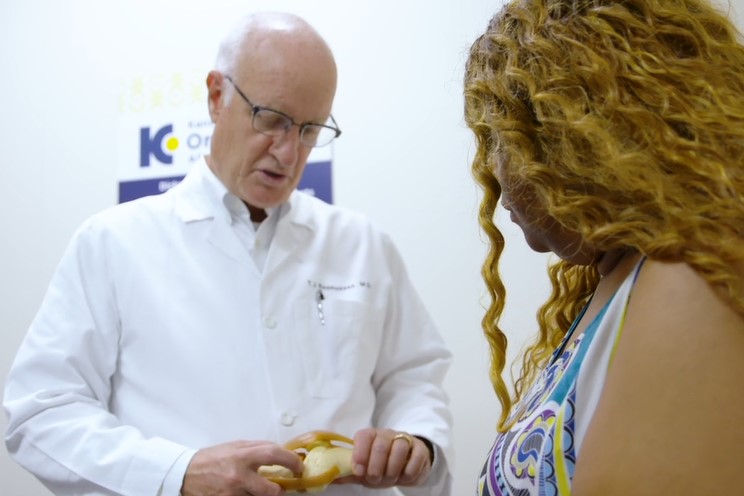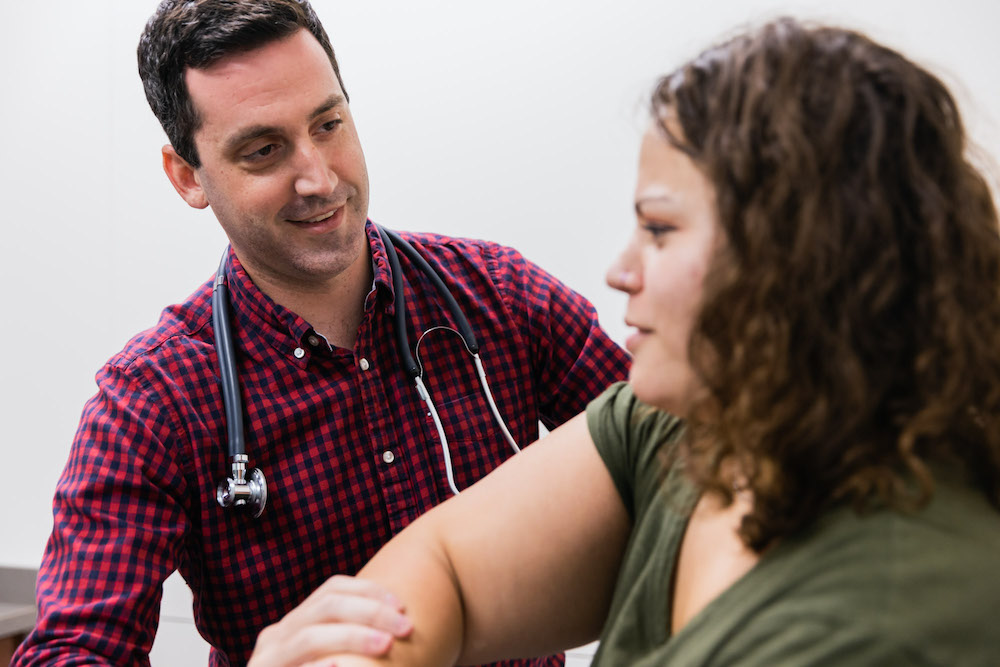
We continue our physician blog series with an informal Q&A with Lowry Jones, Jr., M.D., a board-certified orthopedic surgeon who has been with Dickson-Diveley Orthopaedics for more than 30 years (since 1985).
Dr. Jones, please tell our readers a little about yourself, including your academic and professional background.
After earning my medical degree from the University of Kansas School of Medicine, I completed an internship in internal medicine at Saint Luke’s Health System, followed by my residency in orthopaedic surgery at the University of Missouri-Kansas City.
Today, I am certified by the American Board of Orthopaedic Surgery, and a proud member of the American Academy of Orthopaedic Surgeons and Missouri State Orthopaedic Association. I am also a Clinical Assistant Professor for the Department of Orthopaedic Surgery at the University of Missouri-Kansas City School of Medicine – a position I’ve held since 1985 – and I am an attending physician at Kansas City Orthopaedic Institute. I also proudly serve as Chairman of the Board of Councilors for the American Academy of Orthopaedic Surgeons.
As an orthopedic surgeon, what are your subspecialized areas of expertise?
I primarily treat knee and shoulder injuries, including work-related injuries. In particular, I treat rotator cuff tears, labral tears, torn ACLs and meniscal tears. I also specialize in shoulder replacement surgery, including reverse total shoulder arthroplasty (rTSA).
Why did you decide to pursue a career in orthopedic surgery?
I was very athletic in my younger years, and I experienced a few orthopedic injuries of my own. I always knew I wanted to go into medicine, and it was during medical school that I discovered my interest in orthopedic surgery. During my rotations, I realized the patients I saw in orthopedics were exactly the patients I wanted to work with as a physician. They were athletic, energetic and motivated—and their passion and motivation ultimately led me to pursue a career in orthopedic surgery.
Do you coordinate care with other healthcare professionals—if so, who?
As an orthopedic surgeon who specializes in treating work-related injuries, I often coordinate care with case managers and adjusters to ensure patients return to work as quickly and efficiently as possible. I also work with primary care physicians who refer patients to me when surgery is necessary, as well as physical therapists. If I do not feel surgery is appropriate, I may also refer patients to physical therapists and/or interventional physiatrists.
You’ve mentioned your work with patients who have experienced on-the-job injuries. How do you determine if the injury occurred in the workplace?
There are several factors that help me determine if a patient experienced a work-related injury, including clinical findings and medical history. I also consider the patient’s overall work environment and any comorbidities or pre-existing conditions that could have contributed to the injury.
Describe your approach to treating patients.
My primary goal is to make sure my patients understand that I am invested in their care. Whether they are dealing with a work-related injury or any other type of orthopedic condition, it is my job to help them feel better and return to normal activities. When they are free from pain and able to function, I know I’ve done my job.
If you are a patient, referring physician, case manager or caregiver in need of more in-depth information about Dr. Jones or the procedures he performs, please contact Dickson-Diveley Orthopaedics.


